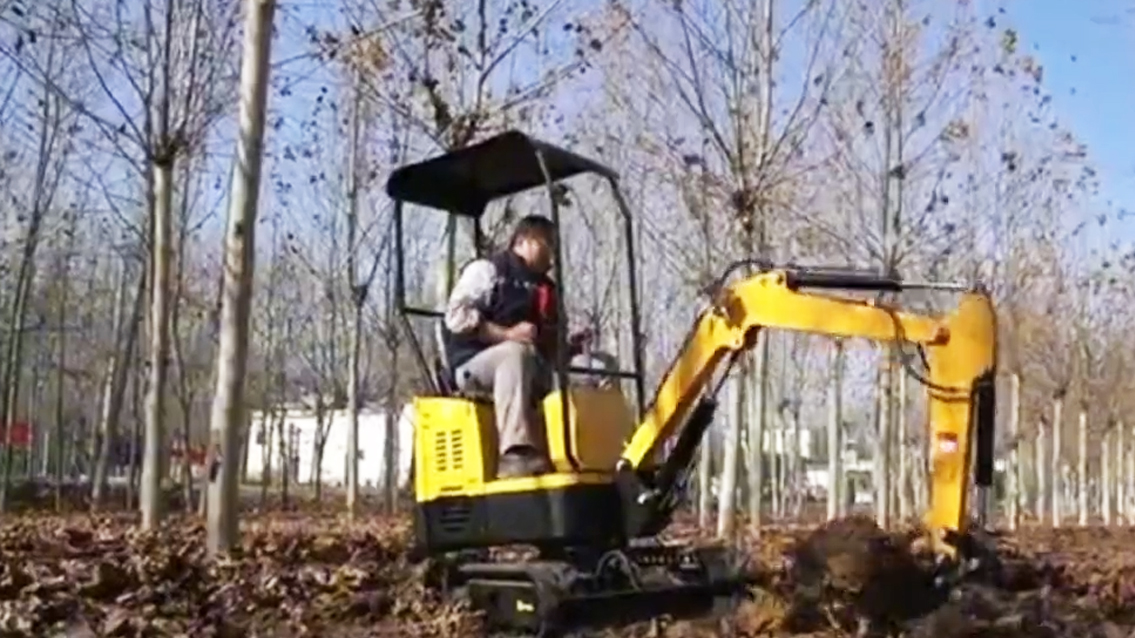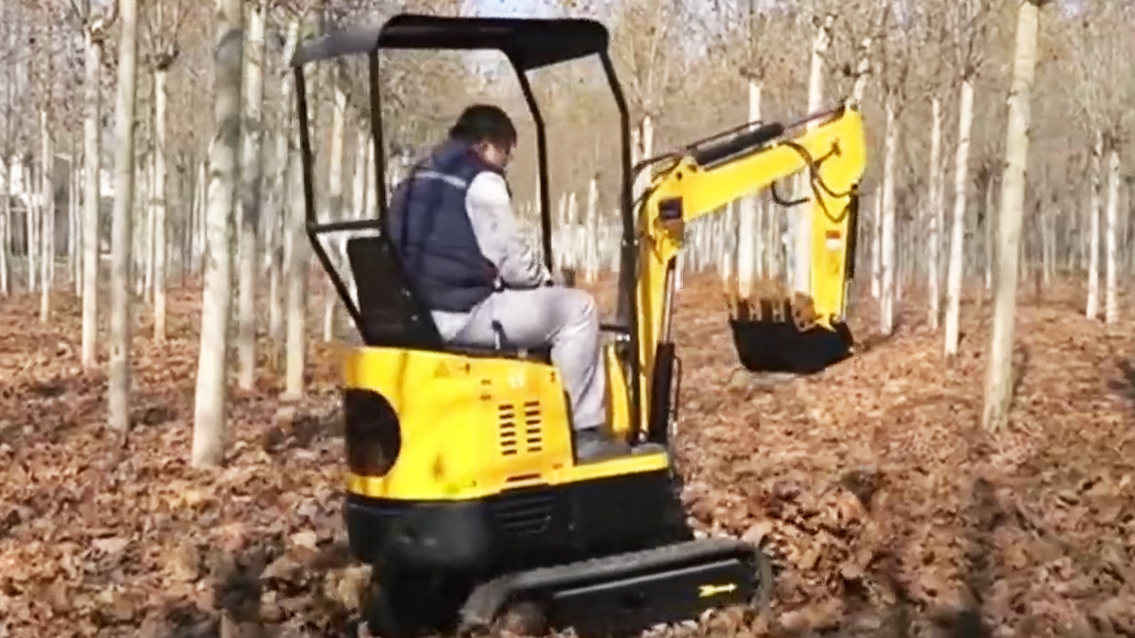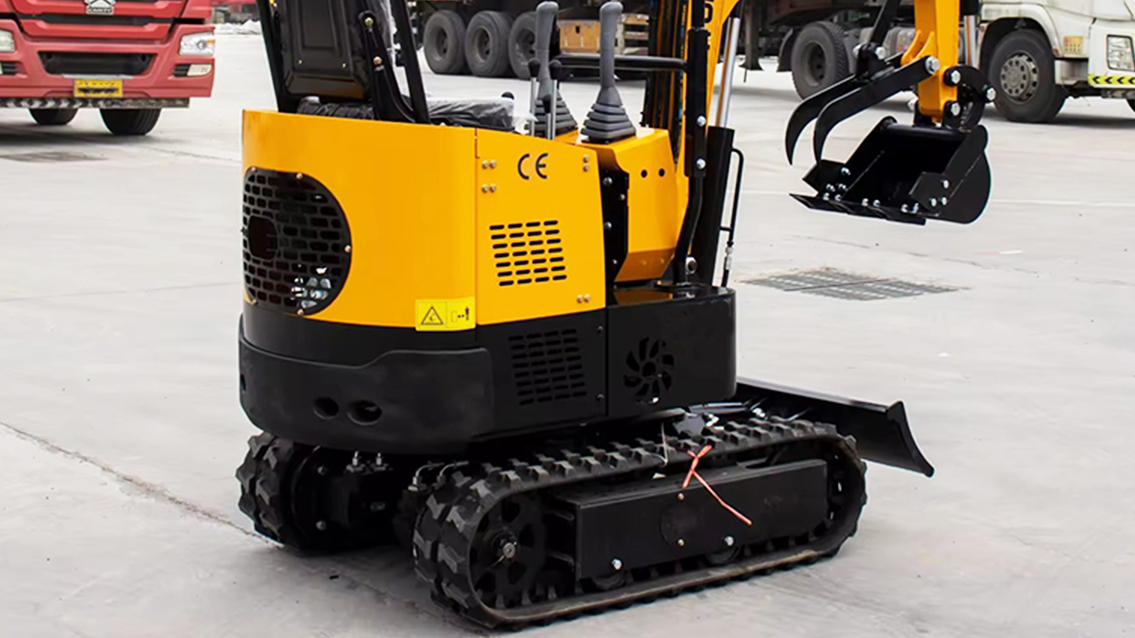Maintaining Your Mini Excavator: Preventing Costly Repairs
Mini excavators, compact yet powerful machines, are indispensable tools in construction, landscaping, and various other industries. Their versatility and maneuverability make them ideal for tasks ranging from digging trenches to demolition work. However, like any heavy machinery, mini excavators require diligent maintenance to ensure optimal performance and prevent costly repairs. This article provides a comprehensive guide to maintaining your mini excavator, focusing on preventative measures that can significantly extend its lifespan and minimize downtime.
Daily Pre-Operation Checks: The Foundation of Preventative Maintenance
Before each workday, a thorough pre-operation check is crucial. This routine inspection allows you to identify potential issues before they escalate into major problems.
Visual Inspection:
Walk around the excavator, checking for any visible damage, leaks, or loose components. Pay close attention to the hydraulic hoses, cylinders, and connections.
Inspect the undercarriage, including the tracks, rollers, and sprockets, for wear and tear.
Examine the boom, arm, and bucket for cracks, bends, or other signs of damage.
Verify that all safety devices, such as the seatbelt and rollover protection system (ROPS), are in good working order.
Fluid Levels:
Check the engine oil, hydraulic fluid, coolant, and fuel levels. Ensure they are within the recommended ranges.
Inspect the fluids for any signs of contamination, such as discoloration or debris.
Greasing:
Grease all lubrication points, including the boom, arm, bucket, and swing bearing. Refer to the operator's manual for the specific lubrication points and grease type.
Proper greasing reduces friction and wear, extending the life of moving parts.
Track Tension:
Check the track tension. Overly tight or loose tracks can cause premature wear and damage to the undercarriage.
Consult the operator’s manual for the correct tension specifications.
Function Test:
Start the engine and allow it to warm up.
Test all controls, including the boom, arm, bucket, swing, and travel functions, to ensure they are operating smoothly.
Verify that all lights and gauges are working correctly.
Scheduled Maintenance: Adhering to the Maintenance Schedule
Following the manufacturer's recommended maintenance schedule is essential for keeping your mini excavator in top condition.
Engine Oil and Filter Changes:
Change the engine oil and filter at the intervals specified in the operator's manual.
Regular oil changes remove contaminants and ensure proper engine lubrication.
Hydraulic Fluid and Filter Changes:
Change the hydraulic fluid and filters according to the recommended schedule.
Clean hydraulic fluid is crucial for the proper functioning of the hydraulic system. Contaminated fluid can cause damage to pumps, valves, and cylinders.
Coolant Flush and Replacement:
Flush and replace the coolant at the recommended intervals to prevent corrosion and maintain proper engine temperature.
Air Filter Replacement:
Replace the air filter regularly to ensure clean air intake and prevent engine damage.
In dusty environments, more frequent filter changes may be necessary.
Fuel Filter Replacement:
Replace the fuel filter to prevent contaminants from entering the fuel system.
Inspection and Adjustment of Belts and Hoses:
Inspect belts and hoses for cracks, wear, or leaks. Replace them as needed.
Loose or damaged belts can cause engine overheating and other problems.
Undercarriage Maintenance:
Regularly inspect and clean the undercarriage, removing debris and checking for wear on tracks, rollers, and sprockets.
Adjust track tension as needed.
Swing Bearing Maintenance:
Grease the swing bearing regularly to prevent wear and ensure smooth rotation.
Inspect the swing bearing for excessive play.
Battery Maintenance:
Check the battery terminals for corrosion and clean them as needed.
Ensure the battery is properly charged.
Checking and Adjusting Valve Clearances:
Valve adjustment, when needed, should be performed by qualified personnel.
Hydraulic System Maintenance: The Heart of the Excavator
The hydraulic system is critical to the operation of a mini excavator. Proper maintenance is essential to prevent costly hydraulic failures.
Fluid Cleanliness:
Use only high-quality hydraulic fluid that meets the manufacturer's specifications.
Prevent contamination by ensuring clean filling and storage practices.
Regularly check the hydraulic fluid for contamination and replace it as needed.
Leak Detection and Repair:
Regularly inspect hydraulic hoses, fittings, and cylinders for leaks.
Repair leaks promptly to prevent fluid loss and damage to the hydraulic system.
Filter Maintenance:
Replace hydraulic filters at the recommended intervals to remove contaminants and maintain fluid cleanliness.
Cylinder Maintenance:
Inspect hydraulic cylinders for damage, such as dents or scratches.
Ensure the cylinder rods are clean and lubricated.
Pump and Valve Maintenance:
Listen for unusual noises from the hydraulic pump, which could indicate a problem.
Ensure hydraulic valves are functioning smoothly and without leaks.
Undercarriage Maintenance: Keeping the Excavator Moving
The undercarriage is subjected to significant wear and tear. Proper maintenance is essential for extending its lifespan.
Track Maintenance:
Regularly inspect tracks for damage, such as cuts, tears, or missing grousers.
Adjust track tension as needed to prevent premature wear.
Clean tracks regularly to remove debris and prevent corrosion.
Roller and Sprocket Maintenance:
Inspect rollers and sprockets for wear and damage.
Replace worn rollers and sprockets to prevent damage to the tracks.
Cleaning:
Clean the Undercarriage of debris regularly. Debris build up can accelerate wear.
5. Preventative Measures for Longevity
Beyond routine maintenance, several preventative measures can further extend the life of your mini excavator.
Proper Operation:
Operate the excavator within its rated capacity.
Avoid excessive digging forces or impacts.
Use the correct attachments for the job.
Smooth operation will reduce wear.
Storage:
Store the excavator in a dry, sheltered location when not in use.
Protect the excavator from extreme weather conditions.
Release hydraulic pressure when storing the machine.
Operator Training:
Ensure operators are properly trained on the safe and efficient operation of the excavator.
Proper training can prevent accidents and damage to the machine.
Regular Inspections by Qualified Technicians:
Schedule regular inspections by qualified technicians to identify potential problems before they become major issues.
These inspections can catch things that may be missed by the operator.
Keep Detailed Records:
Keep detailed records of all maintenance performed on the excavator. This will help you track maintenance schedules and identify recurring problems.
Conclusion
Maintaining a mini excavator requires a consistent and proactive approach. By adhering to a regular maintenance schedule, performing daily pre-operation checks, and implementing preventative measures, you can significantly reduce the risk of costly repairs and extend the life of your machine. Regular maintenance is an investment that will pay off in the long run by ensuring optimal performance, minimizing downtime, and maximizing the return on your investment. Ignoring maintenance can lead to catastrophic failures, resulting in significant financial losses and project delays. By prioritizing preventative maintenance, you can keep your mini excavator operating at its best for years to come.
Post time:Sep-25-2020



